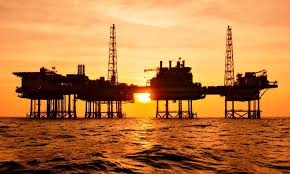The European Bank for Reconstruction and Development (EBRD) will no longer invest in oil and gas exploration and production, the bank’s Managing Director Harry Boyd-Carpenter told Reuters as the institution pledged to align all its activities to the Paris Agreement goals from the end of next year.
“We will no longer invest in upstream oil and gas projects,” Boyd-Carpenter told Reuters on Thursday.
On the same day, the bank announced that its Board of Governors decided at the Annual Meeting 2021 to accelerate decarbonization across the regions it operates, supporting them to reach net-zero emissions by 2050.
The EBRD invests in projects in central and eastern Europe, Central Asia, and the Southern and Eastern Mediterranean.
The EBRD, however, will continue to invest in selected oil and gas projects in the downstream and midstream that are aligned to or contribute to the Paris Agreement goals, EBRD’s Boyd-Carpenter told Reuters.
Must Read: Stanbic Investment Management services outperforms its fund benchmarks for 2020
“The low carbon transition requires the world economy to move in less than 30 years from a more than 80 per cent reliance on fossil fuels to a net-zero model. This is a challenge that is unprecedented in economic history. Similarly, the associated opportunity is enormous,” the EBRD’s First Vice-President Jürgen Rigterink said in a statement.
The EBRD is the latest bank to announce it would halt financing for one or other form of oil and gas.
Last year, Deutsche Bank ended financing for new oil and gas projects in the oil sands and the Arctic region effective immediately.
In the United States, Goldman Sachs said in December 2019 that it would decline to finance new Arctic oil exploration and production and new thermal coal mine development or strip mining. Wells Fargo and JPMorgan have also said they would stop financing new oil and gas projects in the Arctic.
Earlier this year, UN Secretary-General António Guterres’ said that banks should finance low-carbon climate-resilient projects, not big fossil fuel infrastructure that is not even cost-effective anymore.









